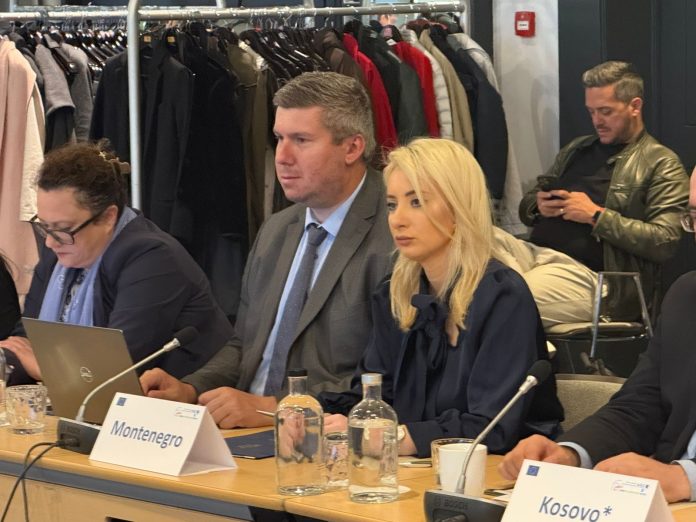At the 7th meeting of the Strategic and Operational Board of the Western Balkans Investment Framework (WBIF), held in Brussels, Montenegro presented an updated list of projects for financing through the Reform and Growth Instrument, along with three infrastructure projects nominated under the 10th WBIF call, with a total value of €80.3 million.
“Montenegro applied for €14.6 million in funding from the resources allocated through the Western Balkans Growth Plan, with support from the European Bank for Reconstruction and Development. The aim of these projects is to ensure energy supply security, the development of a competitive energy market, and sustainable energy development,” stated Minister of European Affairs and national IPA Coordinator, Maida Gorčević.
Nominated projects partially financed through the WBIF include:
- The 110 kV transmission line Herceg Novi – Vilusi, valued at €18.3 million, with a requested investment grant of €3.16 million.
- CEDIS Smart Digitalization – Phase I, valued at €26.4 million, for which €5.1 million has been requested.
- Substation 400/110 kV Brezna – Phase II, valued at €35.5 million, supported through the Growth Plan with €6.38 million.
“The main objective of the 110 kV Herceg Novi – Vilusi project, along with the reconstruction of the 110/35 kV Vilusi substation and expansion of the 110/35 kV Herceg Novi substation, is to strengthen energy supply security, foster the development of a competitive energy market, and promote sustainable energy development. The project aims to provide more reliable electricity supply to the municipality of Herceg Novi and enable the connection of renewable energy sources in the Vilusi and Dragalj areas,” said Gorčević.
She explained that the CEDIS Smart Digitalization project aims to improve the speed and quality of renewable energy integration into the distribution network, enhancing supply reliability for both consumers and producers connected to the substations involved
“The construction of the 400/110 kV Brezna substation – Phase II will contribute to the further development of the transmission network, enabling better connection of renewable energy sources. It will also create conditions for the development of a new 400 kV interconnection with Bosnia and Herzegovina, thereby reducing electricity losses,” stated Gorčević.
The meeting gathered representatives of the European Commission, international financial institutions, and beneficiary countries to strategically align infrastructure project support across the region.
“The Growth Plan and the Western Balkans Investment Framework represent a clear indication that EU enlargement remains a strategic priority for the European Union,” emphasized Gorčević.
In addition to her participation in the meeting, Gorčević also spoke at a political briefing on Montenegro’s EU enlargement prospects organized by the Centre for European Policy, and held several bilateral meetings with EU institution representatives.


